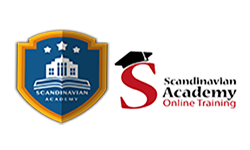INTRODUCTION
Whatever the job title – whether it be administrator, office manager, secretary or something else – the role of co-ordinating and supporting the work of the office, department or team is crucial to everyone’s success and the achievement of departmental and organisational objectives.
This new programme takes a fresh look at this role and the personal skills and approaches needed to fulfil it effectively.
This includes a focus on:
- managing the workload and work-related stress
- managing personal relationships and communicating effectively
- organising and supporting meetings
- managing information and providing what management needs
- monitoring and administering budgets and projects
- improving office systems and processes
- self-development and career management
WHO SHOULD ATTEND?
- Office/department co-ordinators, other administrative personnel, secretaries and personal assistants
PROGRAMME OBJECTIVES
To help participants develop their skills and understanding and to motivate them so that they fulfil their roles effectively and enhance the quality of service they provide to their bosses and departments.
TRAINING METHODOLOGY
This is a varied and participative programme which includes informal lecture, discussion, case studies, exercises and videos. The programme also provides an excellent opportunity for participants to explore and learn from each other’s experience and to benchmark their own approaches accordingly.
PROGRAMME SUMMARY
The programme emphasises the importance of the co-ordinator’s role and the need to develop proactive approaches particularly in solving problems and enhancing the quality of the service provided. Also emphasised is the range of personal skills required and how individuals need to take responsibility for their continuing development.
PROGRAMME OUTLINE
DAY 1 – Managing the Workload/ Managing Pressure and Stress
- Programme introduction and the co-ordinator’s role
- Streamlining systems and cutting out unnecessary work
- Making the best use of resources
- Planning and priority setting
- Managing requests and conflicting priorities
- Helping others manage their time
- Understanding work-based stress and pressure
- ‘Stress-busting’ strategies
DAY 2 – Managing Working Relationships and Effective Communication
- Networking and influencing skills – getting co-operation from others
- Managing relationships with the boss
- Taking a briefing and briefing others (task delegation and co-ordination)
- Principles of effective communication
- Getting the best out of e-mail communication
- Assertiveness
- Dealing with conflict and difficult relationships
DAY 3 – Organising Effective Meetings / Managing & Presenting Information
- What makes an effective meeting?
- Developing agendas
- Co-ordinating participants’ availability and providing advanced information
- Organising venues – location, layout, equipment and catering
- Organising remote meetings (e.g. teleconferencing)
- Making notes and drafting minutes
- Meeting support – designing effective and attractive PowerPoint slides
- Principles of information management
- Digesting data and making it meaningful
- Presenting graphs and tables
- Principles of report writing – editing and enhancing others’ reports
DAY 4 – Managing & Monitoring Budgets and Projects / Getting the Best from Office Technology
- What goes wrong with projects?
- CPA and principles of project planning/scheduling
- Using project planning software
- Budget management – allocating expenditure to budget headings
- Monitoring actual expenditure against budget – variance analysis
- Managing the office environment
- Getting the best from office technology
- Developing paperless systems
- Developing and using relational data-bases
DAY 5 – Developing Your Own Performance/ Getting the Best from Your Appraisal
- Taking a proactive approach to problem solving and continuous improvement
- Identifying blockages to enhanced performance
- Identifying skills and knowledge needs and how to meet them
- Taking an active part in your own appraisal and getting the support you need
- Programme summary and action planning
Advantages of attending and participating in any online training program at the Scandinavian Academy for Training and Development in the Kingdom of Sweden
The trainee will receive a training bag that contains:
- The scientific material preserved on flash memory
- A paper certificate of attendance issued by the Scandinavian Academy for Training and Development
- An electronic certificate of attendance issued by the Scandinavian Academy for Training and Development
- The certificate can be attested by the Swedish Ministry of Foreign Affairs and the trainee’s embassy in the Kingdom of Sweden with an additional fee
Course Features
- Lectures 5
- Quizzes 0
- Duration 15 hours
- Skill level All levels
- Language English
- Students 50
- Certificate Yes
- Assessments Yes









